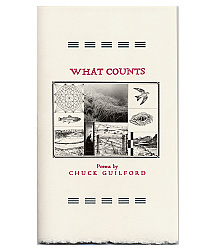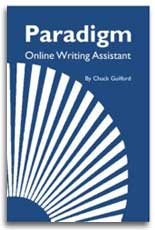Talking with friends, we shape our thoughts freely and spontaneously as words rise to our attention and find their way into conversation. We discover what to say by saying it, and in the process often surprise ourselves with fresh insights and powerful language. Freewriting is an attempt to capture that same verbal energy on paper. Freewriting means just what it says: writing freely, without restrictions. When freewriting, you can write whatever you like without regard to spelling, grammar, paragraphing, or whether it makes any sense.
Just let your thoughts wander, and follow the ones you like best. Let the others go and pick them up later if you want. Relax and loosen the grip on your pen, enjoy feeling the ink flow, shaping your letters, seeing your thoughts and feelings take shape on the page. Or turn off your computer monitor so you can't see (and judge) what you're writing. If your mind slows down, slow your writing speed. Then when thoughts come faster, pick up your pace. Try getting your mind and fingers to work at the same speed, or let one go ahead and pull the other along.
The only thing you shouldn't do is stop. Then you aren't discovering, aren't writing. You may feel a bit self-conscious at first. Most people do, but don't let that bother you. It's unavoidable. Just keep writing, and you'll soon find what you want to say. As you do, keep following your thoughts. Write them down as they come.
Later, you can look back over your freewriting and choose what to keep, change, or delete. But don't reject your own thoughts before even writing them down, and as a result, lose ideas that might prove valuable. For now, just relax and write.
Activities
1.4 Practice freewriting for fifteen minutes. You'll be amazed at how much you can write in such a short time. Just start right in. Don't worry about not having anything to say. If that's what you find yourself thinking, just write, "I don't have anything to say," and keep going from there. As long as you keep your fingers moving, something will be drawn out of you. One of the hardest things you can do is empty your mind of thoughts. Try it and you'll see.
You have the thoughts, just write them down. Don't hold them in. Let your mind go where it will. Turn off your computer monitor. Try adjusting the flow of your thoughts to your writing speed. You don't have to show this to anyone!
1.5 Practice focusing your freewrites. Write for twenty minutes about how you feel about writing; whether you like it or not, whether you've had much experience, what you think you need to work on most, what you'd like to write, or whatever else you want to say about writing.
1.6 Try "looping" your freewriting. Look back over an earlier freewrite and find a sentence or phrase that stands out for you. Write it down and use it as the starting point for a new freewrite. Repeat the process.




